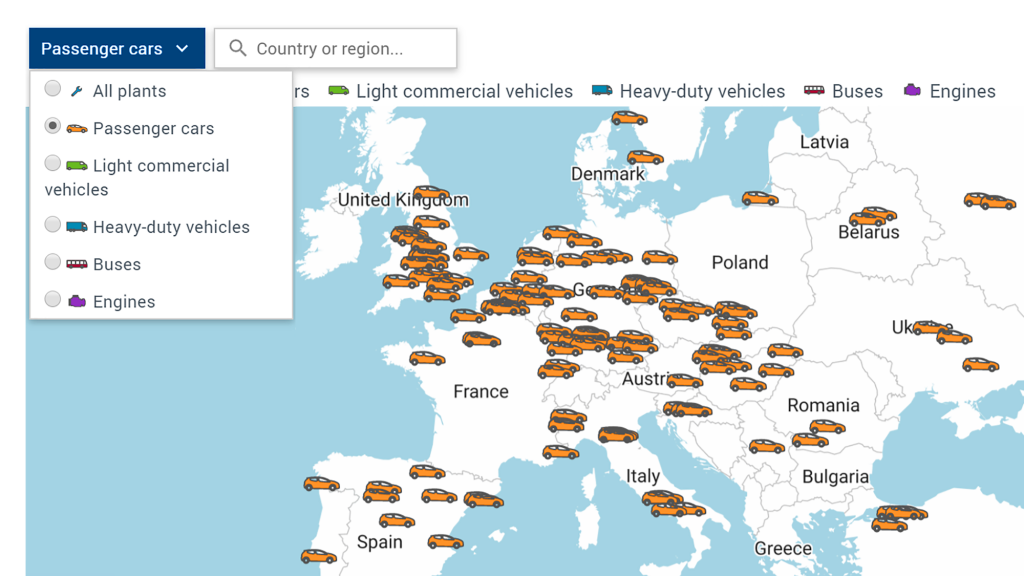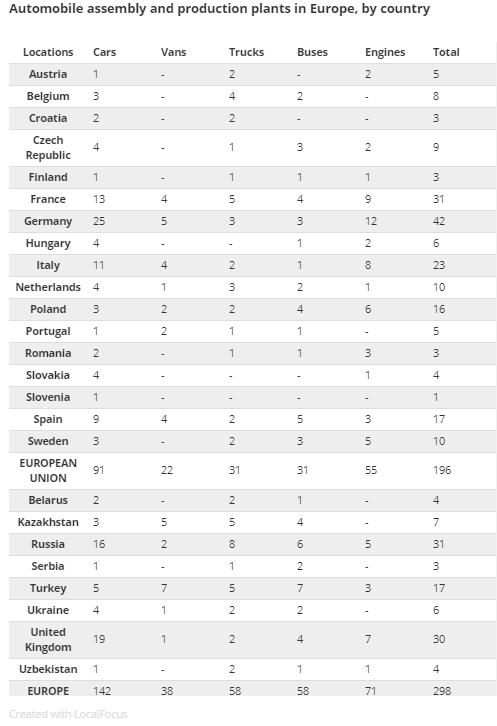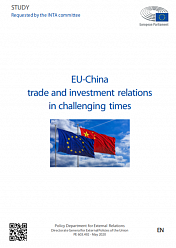
ACEA is publishing this data in the form of an interactive map which shows that 142 plants in Europe produce passenger cars, 38 make light commercial vehicles, 58 build heavy-duty vehicles, 58 produce buses, and 71 make engines. ACEA’s 16 member companies are active in 21 European countries.
«This data shows the sheer scale of our industry’s manufacturing footprint, spanning right across the European continent,» said Eric-Mark Huitema, ACEA’s Director General. «A successful re‐launch of the auto industry post-coronavirus will clearly be vital to Europe’s wider economic recovery.»
Since mid-March, the auto industry has been severely impacted by the COVID-19 crisis, with plants being shuttered for 29 working days on average to date. EU-wide production losses as a result of these factory shutdowns total over 2.3 million vehicles so far. Although a number of factories are slowly re-starting production, they are still operating well below their pre-lockdown capacity.
Eric-Mark Huitema: «If we are to return to full-scale production again, automobile manufacturers and suppliers must get their plants up and running in a quick and synchronised manner. That is why we are calling on the EU to support a coordinated re-start of activities and investments right along the supply chain. Measures will also need to be taken to stimulate demand, given that sales have crashed to an all-time low in many key markets.»





